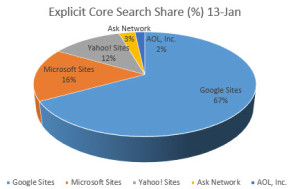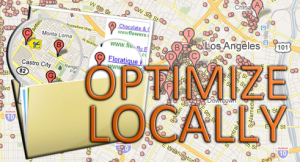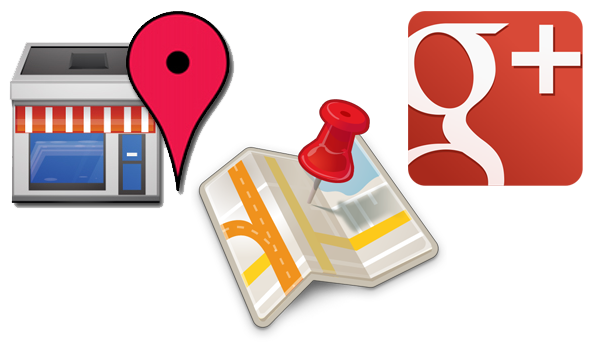Google is the leader in search. The massive 67% ownership of the search market (comScore) shows how a business who occupies top spots in Google Search, can drive big traffic when done right. A high authoritative and trusted website and relevant pages that Google loves will do it. That matters in local search engine optimization as well. 
To attract more visitors (traffic) and get more sales (conversions) in 2014, your local business websites and listings must follow a few core principles. I’ll talk about those in this post, including some (free) local search engine tools to get you started.
You can learn more about “what is Google local” here.
There are a lot of great posts on local SEO and how to get both paid and organic placements. If you want a quick review for 2013, read them here:
Top 10 Local Search Engine Optimization Columns (SEL)
- 10 Things SEOs & SMBs Should Know About New Google Places Dashboard – by Myles Anderson
- Best & Worst Ways To Influence Local SEO Rankings – by Wesley Young
- 10 Tips For Using YouTube To Kill At Local SEO – by Chris Silver Smith
- The Best Link Building For Local SEO — None! – by Chris Silver Smith
- 8 Keys To A Successful Local Business Website – by Wesley Young
- Confessions Of A $100/Month SEO Client – by Andrew Shotland
- Logo Optimization: A Local SEO Stealth Tactic – by Chris Silver Smith
- Did Hummingbird Just Kill Your Local SEO? – by Andrew Shotland
- 5 Ways To Rank Outside Of Your Physical Location In Google Places – by Andrew Shotland
- 10 Simple Things SMB Websites Need To Fix Before SEO – by Andrew Shotland
As you review the information, there are some “patterns” that emerge. We see content, positioning, reviews, Google+, social, mobile, links, citations, authorship and more. Clearly, a lot to take in, and DO. Here are some key points to get started.
Here are the 5 ways to get top local rankings in Google, so you can get started quickly:
1. Get Google Reviews
Reviews create magic in more ways than one. You can get seen across multiple platforms at once. Make it easy for users and personnel (your staff) to make it happen. Don’t spam, and look beyond Google (Yelp, MerchantCircle, etc).
2. Google My Business & Social Profiles
Create and configure Google Business and complete the pages with all profile signals. That’s true for Google, but also Facebook, Twitter, LinkedIn, YouTube, Social networks in general, directories, your site, phone numbers.
Use local keywords in titles, descriptions, build links to the page, and to your local website. Add photos, use descriptive words everywhere, even in the file title/names. Add coupons, and mobile entries. We see a lot of references to “NAP” in local search. Consistency is key – get your N)ame, A)ddress, P)hone numbers correctly entered (or fix them up) across local platforms.
3. Google+ For Your Personal Profile
Add this and make sure to complete it fully. Make sure to leverage the power of Google Knowledge graph, and you’ll see your own picture displayed in Google search results (SERPs).
4. Verify Existing Listing(s)
Are you being found now? Enter your name/company business into Google.
Are you showing up now? Drill deeper and check your business name entry across more platforms on GetListed.org. Then, go add and fix the ones missing. What keywords do you want to be found for? Are your website pages matching to keywords, concepts and your address? Start the research, and use the Google Keyword Tool (Keyword “Planner” now part of Adwords) to get you started.
Do a quick check on https://www.keywordspy.com/ also.
5. Get More Citations and Links
Citations are similar to links, references and mentions from trusted local web sites and directories. Terminology is being inter-mixed, but citations are references across the local search space for your “NAP” (name, address, phone number).
Where are you listed?
Where should you be listed?
Do a quick check to see where you stand. (moz.com/local)
Local directories and your chamber of commerce are good places to start.
The basics are covered here, read the other articles to get a deeper understanding of the work. If you have noteworthy events and media releases, leverage press releases to get the word out, including social media. Press releases should not be used for SEO rankings.
Finally, no spam. Do what the professionals do … think: how can I add value to my community and my market? The users, and subsequently, the search engines – and Google – will love you for it.
P.S.
Don’t forget to send follow-up emails to people who review you. That includes website and local office visitors. Make sure to deliver value and engagement across all your pages and customer experiences.
FREE DOWNLOAD: My local SEO checklist to help rank in local organic search, and Google Maps.
